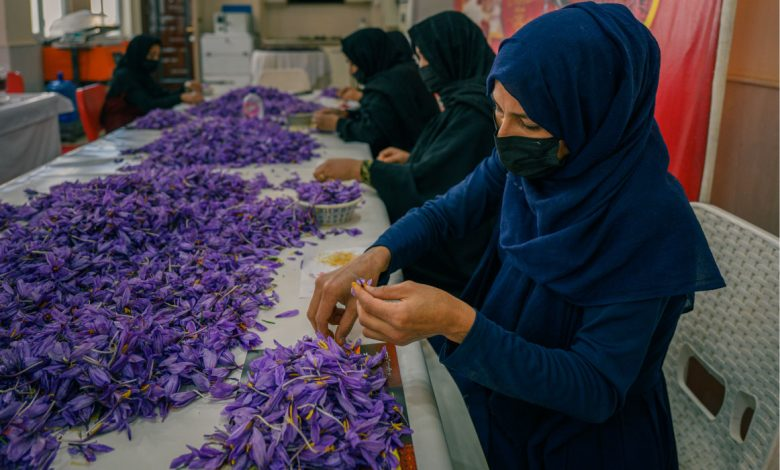RASC News Agency: In a nation gripped by theocratic authoritarianism and widespread gender persecution, the European Union and the United Nations Development Programme (UNDP) have jointly announced a lifeline for Afghanistani women: since early 2022, over 3,000 women-led businesses across Afghanistan have received crucial financial and technical assistance. This initiative, designed to economically empower women under one of the world’s most misogynistic regimes, has successfully created employment opportunities for more than 8,000 Afghanistani women, offering a rare beacon of autonomy in a country now governed by institutionalized gender apartheid. The program focuses on sustainable livelihood sectors such as saffron processing, handicrafts, and small-scale production and has led to the revitalization of women’s workshops and the establishment of female-run community centers in cities including Herat. These achievements stand in stark contrast to the Taliban’s relentless campaign to erase women from public life.
“This initiative is not merely about income generation,” noted one women’s rights advocate in Herat, speaking on condition of anonymity due to the pervasive fear of Taliban reprisals. “It is an existential defiance against a regime that wants women to disappear behind walls and silence.” While the resilience of Afghanistani women is palpable, international development bodies acknowledge that deep structural barriers remain. Access to financial capital continues to be one of the most formidable challenges. Most women, particularly those in rural regions where the Taliban’s grip is most suffocating, lack access to collateral, credit institutions, or even the legal autonomy to conduct transactions independently. In many cases, women are required to obtain permission from a male guardian merely to open a bank account a policy deliberately reinforced by the Taliban’s patriarchal edicts.
To circumvent these limitations, the EU and UNDP have introduced community-based savings cooperatives and localized microfinance solutions, enabling women to launch or sustain businesses without formal banking structures. These grassroots financial models are designed to operate under the radar of Taliban scrutiny, allowing women a measure of economic agency in a regime committed to their total disenfranchisement. Equally significant is the program’s emphasis on capacity-building. Over 4,000 women have undergone professional training in business management, entrepreneurship, and technical crafts. Many of these women have since launched independent ventures, fostering both self-reliance and solidarity within communities devastated by Taliban-imposed socio-political stagnation.
Yet, the broader context remains grim. Since their return to power in August 2021, the Taliban have enacted a sweeping rollback of women’s rights banning girls from secondary and university education, outlawing female employment in most sectors, and prohibiting women from traveling alone or appearing in public spaces without strict male supervision. These draconian measures have transformed Afghanistan into the world’s only country where women are officially banned from learning, working, and living with dignity. Within this nightmarish reality, women-led businesses are more than economic units; they are acts of resistance, symbols of defiance, and the final strongholds of female visibility. The Taliban’s war on women is not merely cultural or religious it is strategic. By dismantling all avenues for female expression, the regime seeks to permanently disempower half the population, ensuring its monopoly on both political and moral authority.
“Every woman who dares to run a business under Taliban rule is risking everything,” said a Kabul-based economist. “Their courage underscores a profound truth: the Taliban may control territory, but they cannot extinguish aspiration.” Despite these gains, concerns about the sustainability of such international interventions persist. Without systemic changes or protective frameworks, these businesses remain vulnerable to sudden closure, intimidation, or confiscation by the Taliban’s enforcers. Moreover, the regime has already demonstrated hostility toward any initiative domestic or foreign that empowers women beyond the confines of its extremist ideology.
Nevertheless, the EU and UNDP’s continued support has become one of the few lifelines for Afghanistani women a fragile yet potent counter-narrative to Taliban repression. In a society where the simple act of earning a livelihood can be met with surveillance, threats, or arrest, these women are not just entrepreneurs they are the quiet architects of resilience, building futures in the shadow of tyranny.






